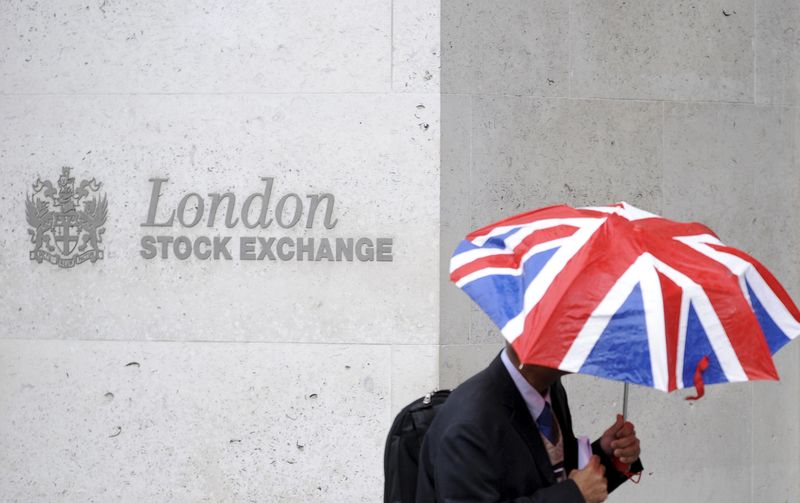This post was originally published on this site
https://i-invdn-com.akamaized.net/news/LYNXNPEC1S0OV_M.jpg © Reuters. British Stocks May Be 2020’s Best Opportunity
© Reuters. British Stocks May Be 2020’s Best Opportunity(Bloomberg) — Want the lowdown on European markets? In your inbox before the open, every day. Sign up here.
With the U.K. general election in full swing, an increasing number of equity market strategists and portfolio managers are turning their attention to the country’s equities, looking for opportunities after months of Brexit-induced underperformance.
In the coming days, traders’ focus will be on the sectors that could benefit the most from the Conservative Party’s election manifesto, unveiled on Sunday, such as construction and house-building companies.
Beyond that, the overall investor sentiment toward U.K. stocks is starting to change for the better, according to Morgan Stanley (NYSE:) strategists, who say the country’s shares are “potentially the best global equity opportunity for 2020.” They cite a much reduced risk of no-deal Brexit, relative valuations at 30-year lows, and very low positioning from asset managers who have shunned the market, spooked by all the political drama of the past year.
Credit Suisse (SIX:) strategists share this view, saying that British stocks are 14% undervalued according to their model based on lead indicators, sterling, crude prices and emerging markets.
The country’s small-caps look particularly attractive, Morgan Stanley says, given their high domestic exposure and low valuation in both absolute and relative terms. Indeed, the Small Cap index trade at a 35% discount to its 20-year average, and also at a 10-year low compared to U.K. mid-caps, despite the recent rise of the pound.
The case for U.K. stocks goes beyond valuation levels. The macro-economic picture could also become a catalyst for a recovery. Morgan Stanley economists expect the U.K. economy to rebound strongly next year, helped by substantial fiscal stimulus. They forecast GDP growth to rise from 0.4% year-on-year in the first quarter of 2020 to 2.3% in the fourth quarter of the same year.
Credit Suisse also sees fiscal stimulus, of at least 1.5% of GDP, irrespective of which party forms the new government after the next election. Stimulus measures would potentially help consumer spending, which has been depressed since Brexit. This would be good news for the retail sector.
That’s for the medium-term outlook. For the time being, there aren’t clear signals of a rebound. Markit’s U.K. PMIs last week showed the U.K. economy’s performance this month was the worst since July 2016. The latest weakness was attributed to the uncertainty associated with Brexit negotiations and the general election.
For Mark Dowding, CIO at BlueBay Asset Management, although a Conservative majority is the most likely outcome, there is a sense that investors could be heading into December with a degree of complacency, pricing a clear Tory win by extrapolating national polls. When looking at polls seat by seat however, the race looks much closer, Dowding warns. This seems to have translated into FX markets: the pound has stalled lately, as did the unwinding of short positioning on sterling, as the chart below shows.
Fusion Media or anyone involved with Fusion Media will not accept any liability for loss or damage as a result of reliance on the information including data, quotes, charts and buy/sell signals contained within this website. Please be fully informed regarding the risks and costs associated with trading the financial markets, it is one of the riskiest investment forms possible.

